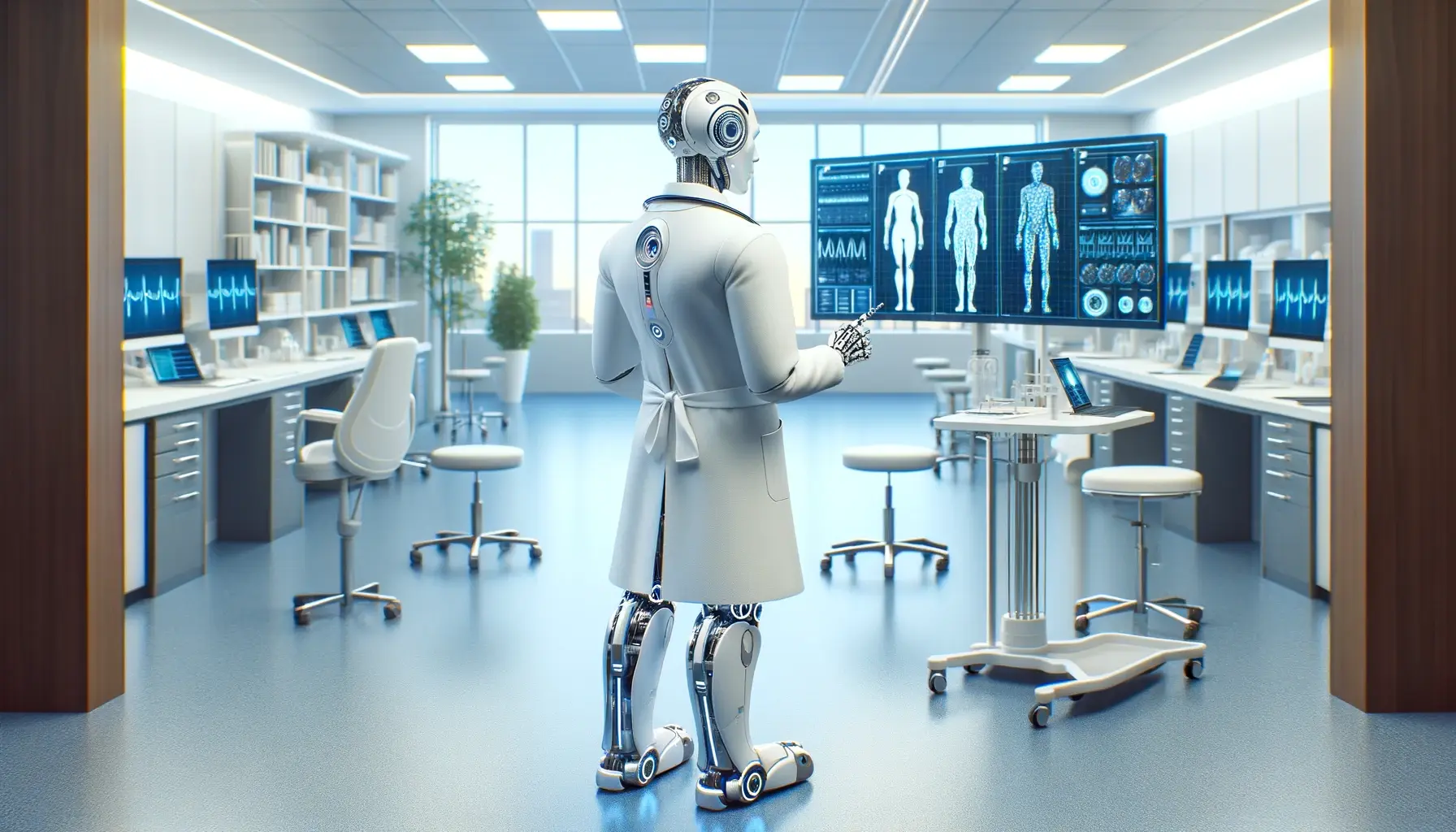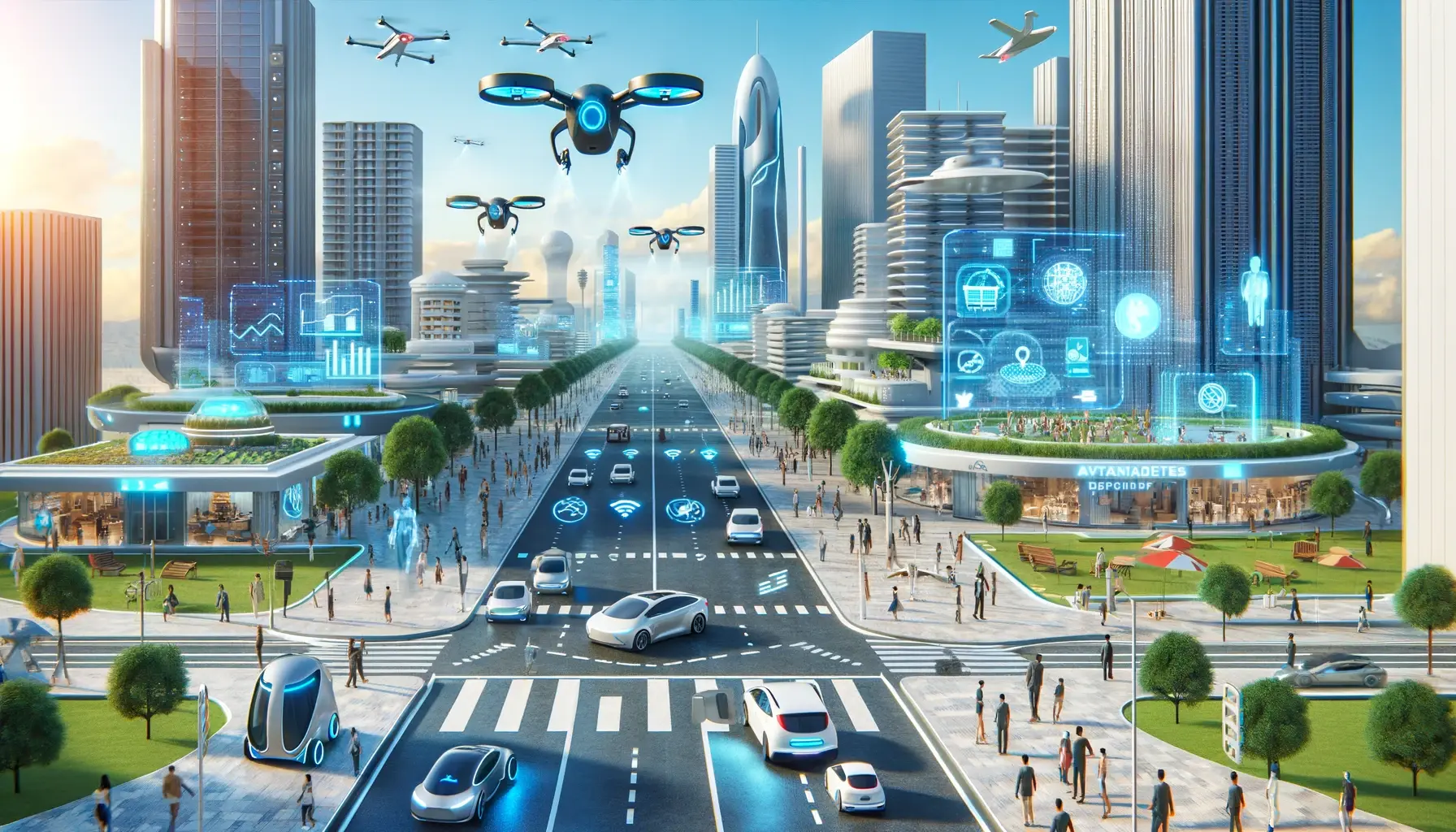Artificial Intelligence (AI) is transforming the healthcare industry in unprecedented ways, offering solutions that were once thought to be the stuff of science fiction. From diagnosing diseases to personalizing treatment plans, AI’s impact on healthcare is profound and far-reaching. In this blog post, we’ll explore the various ways in which AI is being utilized in healthcare and its potential future implications.
Early Diagnosis and Predictive Analytics
One of the most significant contributions of AI in healthcare is its ability to diagnose diseases at early stages, often before they manifest any symptoms. AI algorithms can analyze medical images, such as X-rays, MRIs, and CT scans, more quickly and accurately than human radiologists. For example, AI models are being used to detect cancers, such as breast and lung cancer, at early stages, significantly improving patient outcomes.
Predictive Analytics for Preventive Healthcare
AI-driven predictive analytics use patient data to foresee potential health risks. By analyzing patterns in historical patient data, AI can predict the likelihood of diseases like diabetes or heart attacks before they occur, enabling preventive care measures.
Personalized Medicine
AI’s ability to analyze vast datasets can lead to more personalized medicine. By considering a patient’s genetic makeup, lifestyle, and environmental factors, AI can help tailor treatments to the individual, increasing their effectiveness.
Drug Development and Genomics
AI accelerates the drug discovery process by predicting how different drugs might interact with various targets in the body. In genomics, AI analyzes genetic data to understand diseases better and develop gene therapies tailored to individual genetic profiles.
Virtual Health Assistants and Telemedicine
AI-powered virtual health assistants provide patients with medical information, remind them to take their medication, and monitor their health conditions. In telemedicine, AI supports remote diagnosis and treatment, making healthcare more accessible, especially in rural or underserved areas.
Chatbots for Patient Engagement
AI-driven chatbots are being increasingly used for patient engagement and support. They can answer health-related queries, schedule appointments, and even provide mental health support.
AI in Healthcare Administration
AI is also streamlining healthcare administration. It helps in managing patient records, processing insurance claims, and predicting hospital admission rates, which aids in resource allocation and reduces operational costs.
Challenges and Ethical Considerations
Despite its benefits, AI in healthcare faces challenges, including data privacy concerns, the need for large, diverse datasets, and the risk of bias in AI algorithms. Additionally, ethical considerations such as patient consent and the transparency of AI decision-making processes are critical.
The Future of AI in Healthcare
Looking ahead, AI is set to become more integrated into healthcare delivery. With advancements in AI technology, we can expect more sophisticated diagnostic tools, more effective treatments, and overall, a more efficient and patient-centric healthcare system.
The Role of AI in Pandemic Response
AI will also play a crucial role in future pandemic responses. From predicting disease outbreaks to accelerating vaccine development, AI has the potential to be a game-changer in global health emergencies.
Conclusion
AI in healthcare is not just enhancing existing practices but is also paving the way for new forms of medical intervention and care. While there are challenges to overcome, the benefits of AI in healthcare are undeniable, promising a future where healthcare is more accessible, personalized, and effective.
Stay updated with the latest in AI technology’s developments by following our tech blog!



